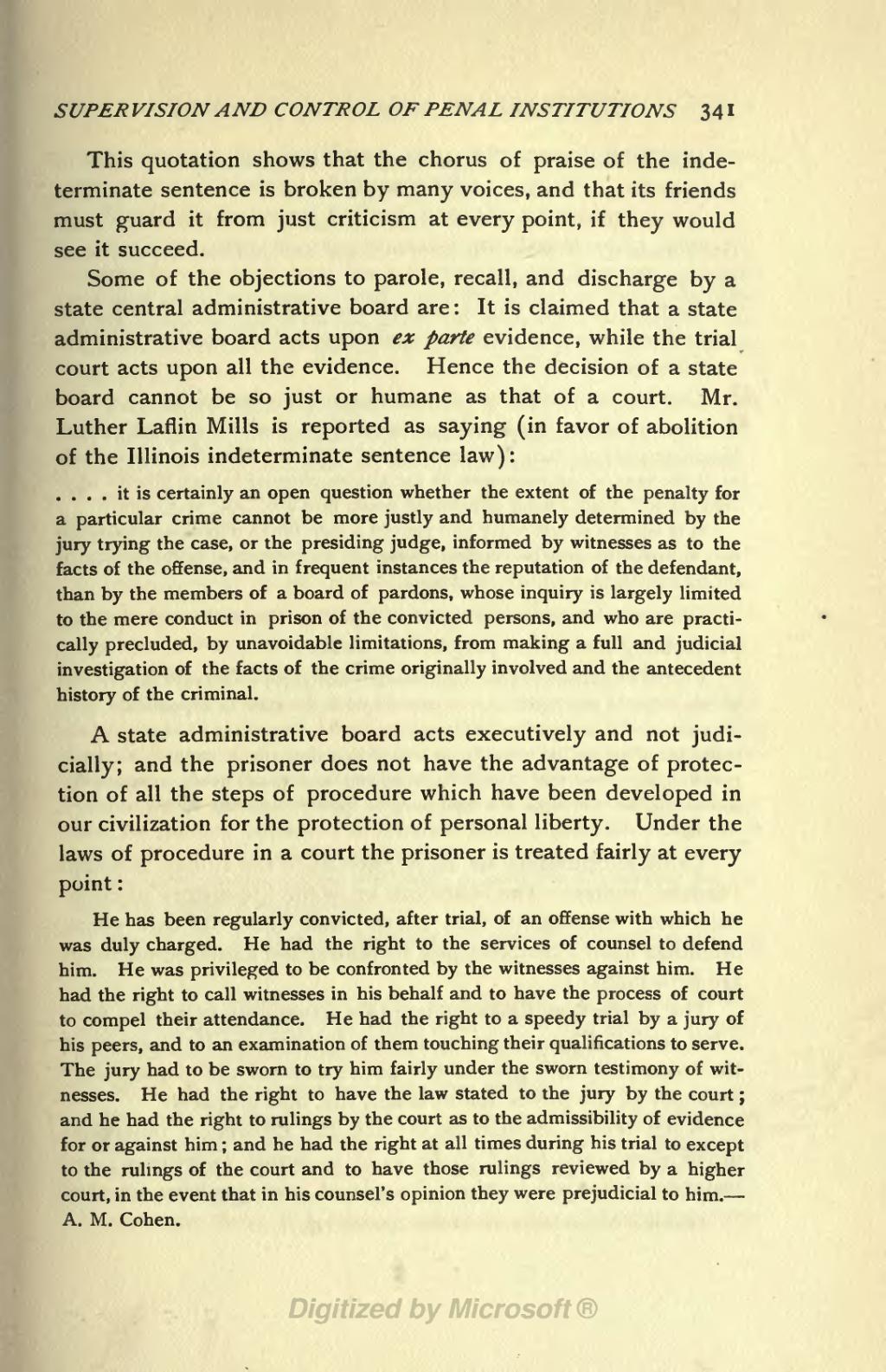SUPER VISION AND CONTROL OF PENAL INSTITUTIONS 34 1
This quotation shows that the chorus of praise of the inde- terminate sentence is broken by many voices, and that its friends must guard it from just criticism at every point, if they would see it succeed.
Some of the objections to parole, recall, and discharge by a state central administrative board are : It is claimed that a state administrative board acts upon ex parte evidence, while the trial court acts upon all the evidence. Hence the decision of a state board cannot be so just or humane as that of a court. Mr. Luther Laflin Mills is reported as saying (in favor of abolition of the Illinois indeterminate sentence law):
.... it is certainly an open question whether the extent of the penalty for a particular crime cannot be more justly and humanely determined by the jury trying the case, or the presiding judge, informed by witnesses as to the facts of the offense, and in frequent instances the reputation of the defendant, than by the members of a board of pardons, whose inquiry is largely limited to the mere conduct in prison of the convicted persons, and who are practi- cally precluded, by unavoidable limitations, from making a full and judicial investigation of the facts of the crime originally involved and the antecedent history of the criminal.
A state administrative board acts executively and not judi- cially; and the prisoner does not have the advantage of protec- tion of all the steps of procedure which have been developed in our civilization for the protection of personal liberty. Under the laws of procedure in a court the prisoner is treated fairly at every point :
He has been regularly convicted, after trial, of an offense with which he was duly charged. He had the right to the services of counsel to defend him. He was privileged to be confronted by the witnesses against him. He had the right to call witnesses in his behalf and to have the process of court to compel their attendance. He had the right to a speedy trial by a jury of his peers, and to an examination of them touching their qualifications to serve. The jury had to be sworn to try him fairly under the sworn testimony of wit- nesses. He had the right to have the law stated to the jury by the court ; and he had the right to rulings by the court as to the admissibility of evidence for or against him ; and he had the right at all times during his trial to except to the rulings of the court and to have those rulings reviewed by a higher court, in the event that in his counsel's opinion they were prejudicial to him. A. M. Cohen.
